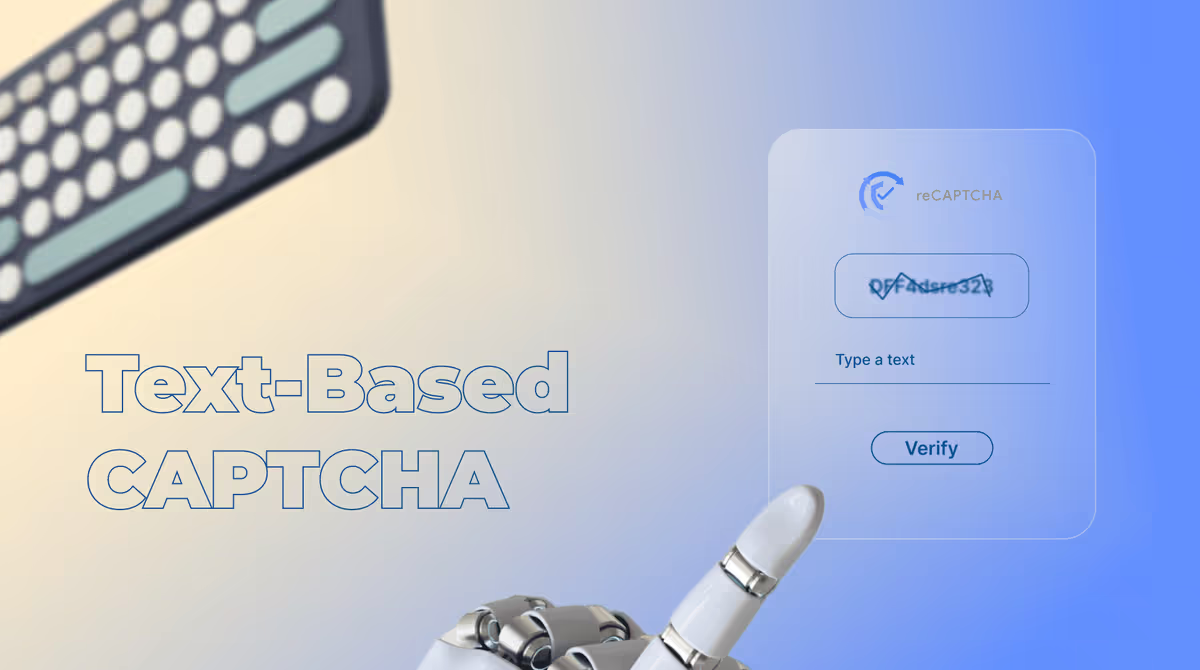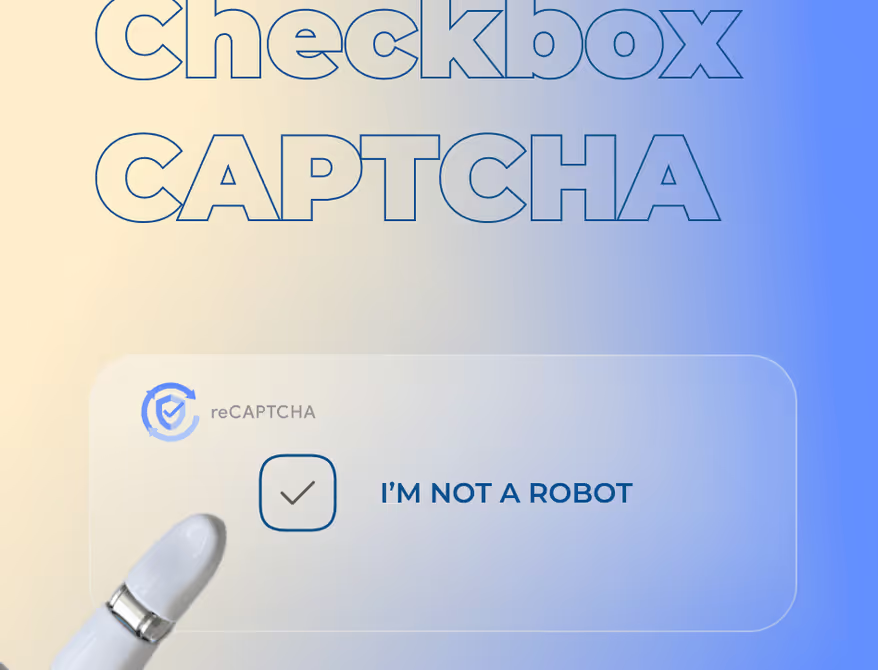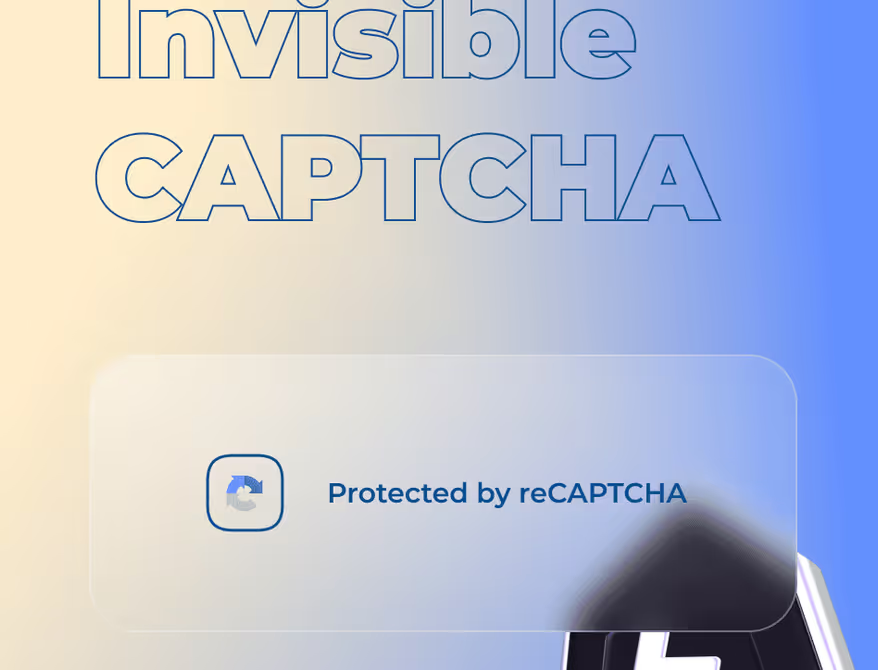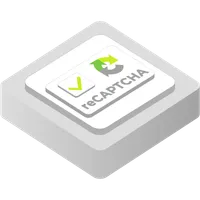What is CAPTCHA?
CAPTCHA, short for Completely Automated Public Turing Test to Tell Computers and Humans Apart, is a tool used online to verify that users are humans, not bots. It presents challenges like distorted text or image puzzles that humans can solve but are difficult for computers. This helps prevent spam and automated attacks, ensuring website security.
You should use CAPTCHA to enhance the security of your website or online platform. CAPTCHA helps prevent automated bots from performing malicious activities such as spamming contact forms, creating fake accounts, or conducting brute-force attacks. By implementing CAPTCHA, you can ensure that genuine users have smoother, safer interactions with your site, protecting both the user experience and data integrity.
Types of CAPTCHA
CAPTCHA exists in several forms, each designed to balance security and usability

Text-Based CAPTCHA
Users are presented with distorted or obscured text that they must interpret and enter into a text box. This type is effective but can sometimes be challenging for users with visual impairments or dyslexia.

Image-Based CAPTCHA
Instead of text, this type requires users to identify objects, patterns, or scenes within images. For example, users might select all images containing vehicles or street signs. This type is more intuitive for many users but may be vulnerable to advanced algorithms capable of image recognition.

Audio CAPTCHA:
Designed for accessibility, audio CAPTCHA presents challenges in the form of spoken numbers, letters, or words that users must listen to and then type into a text box. It provides an alternative for users who have difficulty with visual challenges but can be less secure against sophisticated bots capable of audio recognition.
Checkbox CAPTCHA (reCAPTCHA v2):
This type requires users to simply click a checkbox to confirm they are human. It uses advanced risk analysis techniques behind the scenes to determine if additional challenges are necessary based on user behavior.
Invisible CAPTCHA (reCAPTCHA v3):
This type runs in the background without requiring any action from the user. It scores each user interaction and provides a risk score, allowing websites to take appropriate action based on the score.
The Role of CAPTCHA in Web Security
- Preventing Automated Attacks
CAPTCHA challenges, such as distorted text or image recognition tasks, are designed to be easily solvable by humans but difficult for bots. This prevents automated bots from spamming forms, creating fake accounts, or performing brute-force attacks on login pages. - Protecting User Data
By preventing automated bots from accessing sensitive areas of a website, CAPTCHA helps protect user data and privacy. It ensures that only legitimate users can access and interact with secure features like account registration, password resets, and online transactions. - Enhancing Website Integrity
Implementing CAPTCHA helps maintain the integrity of websites by reducing the impact of spam and malicious activities. It prevents comment spam on blogs, fake registrations on forums, and automated scraping of content by bots. - Supporting Accessibility
While CAPTCHA is essential for security, it's crucial to consider accessibility. Alternative CAPTCHA methods, such as audio challenges or user-friendly checkbox options, ensure that users with disabilities can also access and use websites securely. - Improving User Experience
Despite its security benefits, CAPTCHA should be implemented in a way that minimizes disruption to legitimate users. Modern CAPTCHA solutions, like invisible CAPTCHA or checkbox challenges, provide a seamless user experience by reducing friction and only presenting challenges when necessary.
But if you're still wondering why robots can't pass Google's tests and how reCAPTCHA really works, check out this video:
Advancements in CAPTCHA: reCAPTCHA
What is reCAPTCHA?
reCAPTCHA represents a significant advancement in CAPTCHA technology, introduced by Google to enhance security and usability on the web.
While traditional CAPTCHA systems faced challenges in maintaining effectiveness against evolving bot tactics, reCAPTCHA addressed these issues with innovative features:
- Advanced Security Measures
reCAPTCHA utilizes advanced risk analysis techniques and machine learning algorithms to accurately differentiate between human users and bots. This dynamic approach adapts to new threats and ensures robust protection against automated attacks such as spamming, account creation, and malicious login attempts. - Improved User Experience
Unlike earlier CAPTCHA versions that often required complex tasks, reCAPTCHA introduced user-friendly options like Checkbox CAPTCHA (reCAPTCHA v2) and Invisible CAPTCHA (reCAPTCHA v3). These implementations reduced user friction by requiring minimal interaction while maintaining high-security standards. - Accessibility Features
Recognizing the importance of accessibility, reCAPTCHA offers alternative challenges, such as audio CAPTCHA for users with visual impairments. This commitment ensures that all users can access and interact with websites securely, regardless of their abilities. - Integration with Google Services
Beyond its standalone application, reCAPTCHA integrates seamlessly with various Google services, providing enhanced security across Google's ecosystem while offering website owners effective tools to combat malicious activities.
Future Trends in CAPTCHA Technology
In the future, we believe CAPTCHA technology will integrate biometric authentication, such as facial recognition and voice authentication, for enhanced security. Adaptive challenges will adjust based on user behavior, making CAPTCHAs even more effective against evolving cyber threats. AI algorithms will play a key role in these advancements, becoming smarter at detecting and mitigating risks in real-time.
This next generation of CAPTCHA systems aims to create a safer, more seamless online experience, protecting user identities and sensitive information with cutting-edge technology, and we are eager to see this unfold.




